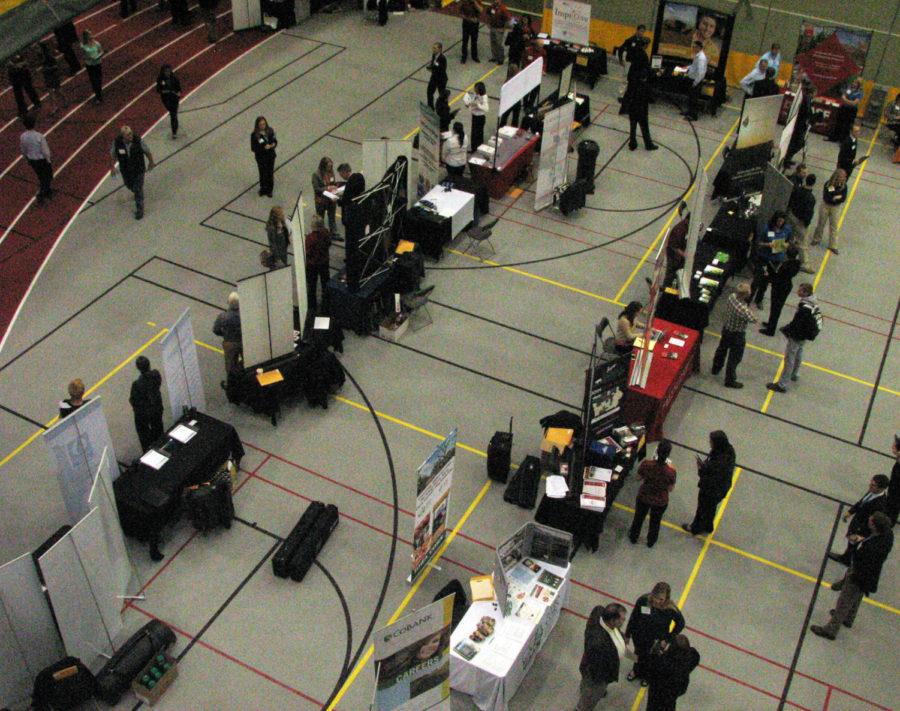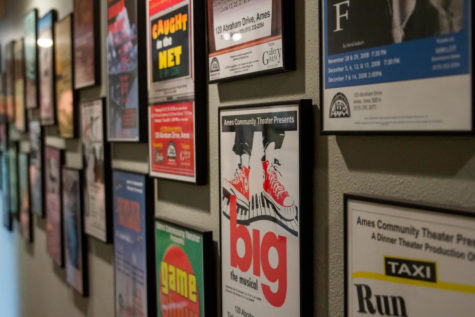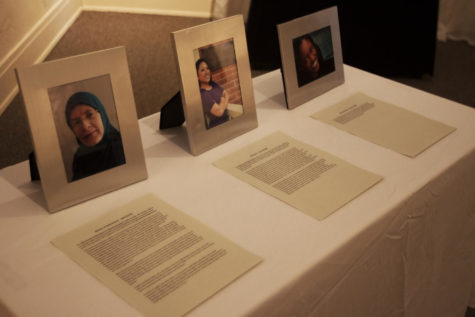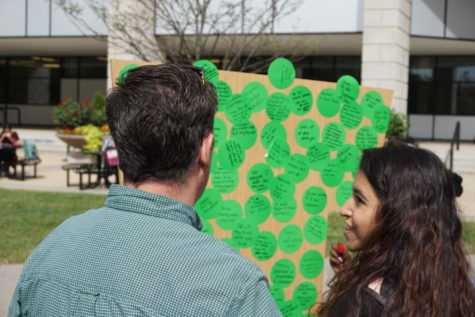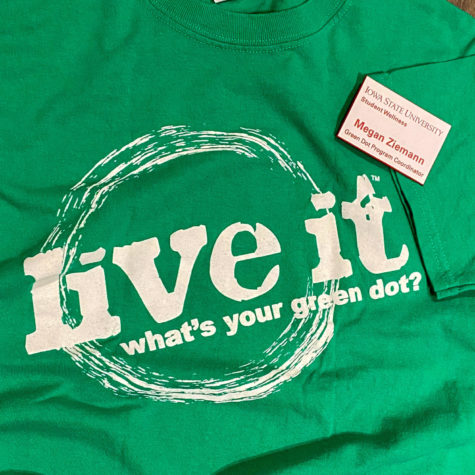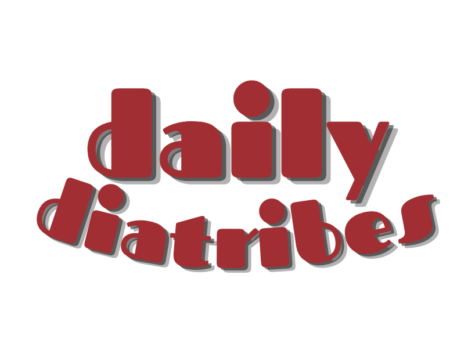How to be successful at the Ag Career Fair
The Ag and Life Sciences Career Day was held Oct. 15, 2013 at the Lied Rec Center. From 9 a.m. to 3 p.m., students had the opportunity to meet with over fifty employers relating to agriculture and life sciences.
October 13, 2014
Being successful at the Ag Career Day can open the door for countless job opportunities.
This means having an involved resume, knowing what businesses offer and speaking with confidence.
Most college students take it as a given to dress for success at the career fair, but a student can make a lasting impression if they approach a business with confidence, Mike Gaul, the director of career placement with the College of Agriculture and Life Sciences Career Services mentioned.
On top of this, students should research the company before approaching them.
“On our website we list the companies that will be at the career fair with a link to their website. It is so important to research companies so you walk up and at least know a little about them to engage in conversation with them,” said Gaul.
Lastly, when leaving a business, ask for the business’s card and go as far as to ask when they are scheduling interviews to get your name out there.
A good resume is another must-have to being successful at the career fair.
There are many things that can set a resume apart from others, one of which includes involvement.
“I don’t care if it’s clubs. I don’t care if it’s sports. I don’t care if it’s the Greek system. Have you been involved on campus?” said Gaul.
Not only is it important for a student to show involvement, but also the layout needs to be appealing to the eyes and you must avoid having a lot of empty space.
Being well rounded is another key factor to resumes, which can be shown through summer internships. Gaul says these are all important because they develop leadership, interpersonal and communication skills.
If you are fortunate enough to get an interview after the career fair, having speaking skills is an even bigger necessity.
“Employers are known to start the interview off with ‘tell me a little about yourself’,” said Ron Deiter, professor of economics at Iowa State.
Although many students underestimate the power of this statement, don’t be afraid to spend a minute or two telling them about your unique attributes.
Include anything interesting like hobbies, leadership positions, number of siblings, a personal experience — anything that is out of the norm.
Most employers will ask situational questions. Their intent is to see how you have behaved in the past, which will predict future behavior.
Some businesses will go as far as asking, “if you could be any part of the pizza, what would you be and why?” Deiter said this is to see how quick someone thinks on his or her feet.
All in all, avoid cliché and broad terms such as “I’m a hard worker” or “I’m technologically savvy.” Employers already expect this out of potential employees.
Students should go further into detail as to what makes them a hard worker or good with technology.
“I think as long as you make a good impression, you look good, you’ve got good eye contact, you come across as very friendly, you want to shake their hand, be engaging — you’ll be successful at the Career Fair,” said Deiter.

